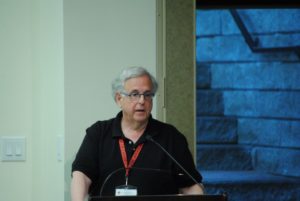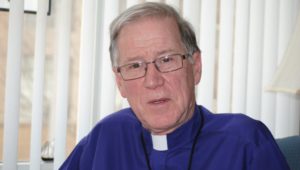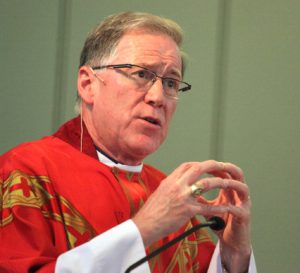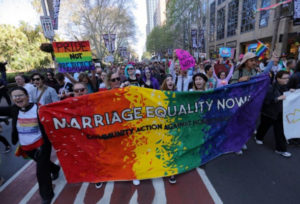The Anglican Church of Canada is shying away from making definitive theological statements about issues it considers difficult. For example, the ACoC has made no coherent statements on the rightness or wrongness of abortion, euthanasia or changing the marriage canon. Instead we are exhorted to listen to people’s stories: theology by anecdote. In areas where it should have at least a modicum of expertise, the church is completely at sea; issues such as global warming, whose understanding requires detailed technical knowledge that the church does not possess, are the constant subject of dogmatic, “binary” denunciations and pious outbursts.
Here are six people’s views on changing the marriage canon, a conundrum which, we are told, has “no easy answers”. Rubbish, there is a perfectly easy answer derived from Scripture, one which has been the foundation of the church’s position on marriage for 2000 years.
Interestingly, of the six people, those in favour of same-sex marriage include a lesbian clergywoman, a lesbian who is “part of the queer community” who doesn’t attend an Anglican church and an openly homosexual layman who does attend an Anglican church. The three supporting orthodox Christian marriage are all Anglican laypeople.
As delegates to General Synod prepare to vote on a second reading of Resolution A051-R2, potential changes to the Anglican Church of Canada’s marriage canon, the Anglican Journal’s editorial staffers have given much consideration to our task. What should we write? What should readers hear before the vote?
Few topics have further challenged the church—in recent years, at least—than same-sex marriage. Is love or tradition more important? Could God make the two mutually exclusive? Should the church hold people back or press people forward, unwillingly in either case?
There are no easy answers to these questions, as acknowledged by the “A Word to the Church” document about the proposed amendment of marriage canon and potential amendments, proposed by Council of General Synod in March, to the resolution considered in 2016.
[…..]
The Journal’s decision was to share the words of people like Natalie: people with lived experiences that extend beyond a yes-or-no question. The Journal’s Joelle Kidd and Tali Folkins spoke with six Anglicans—three in favour of the resolution and three opposed to it—to ask them:


 The officer of General Synod who advises the Anglican Church of Canada on canon law and legal matters says he’s “absolutely confident” that human-rights complaints made against clergy who refuse to perform same-sex marriages would fail.
The officer of General Synod who advises the Anglican Church of Canada on canon law and legal matters says he’s “absolutely confident” that human-rights complaints made against clergy who refuse to perform same-sex marriages would fail. A resolution to amend the marriage canon to allow for same-sex marriages may itself be amended to include protections for Anglicans who hold to the traditional view of marriage, said Archbishop Fred Hiltz, primate of the Anglican Church of Canada.
A resolution to amend the marriage canon to allow for same-sex marriages may itself be amended to include protections for Anglicans who hold to the traditional view of marriage, said Archbishop Fred Hiltz, primate of the Anglican Church of Canada. From
From  From
From